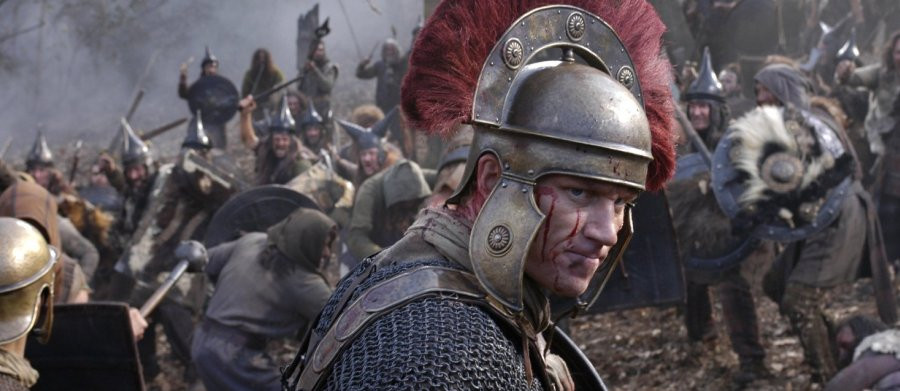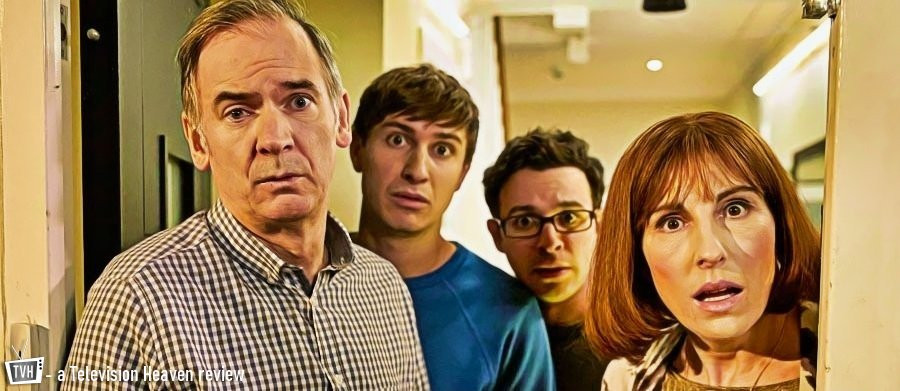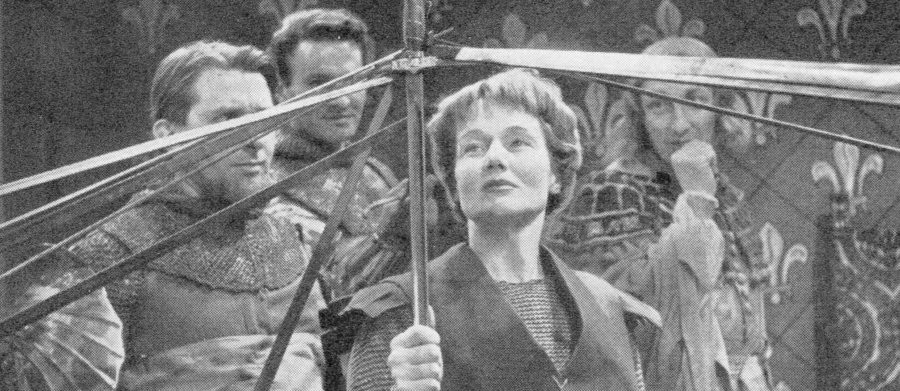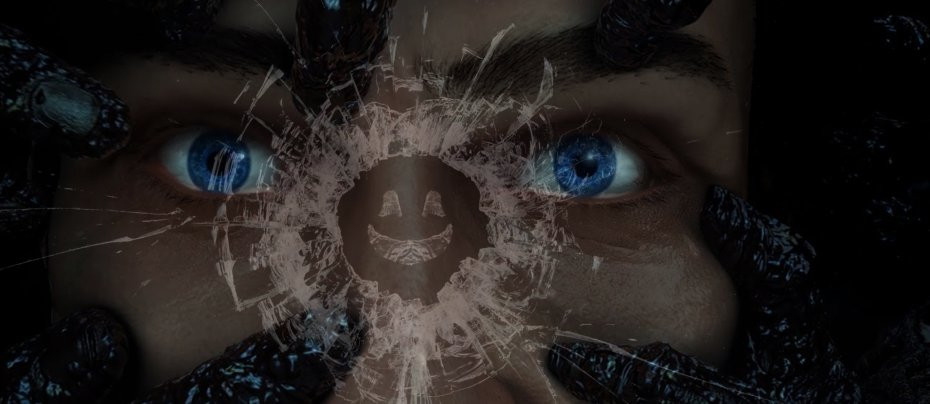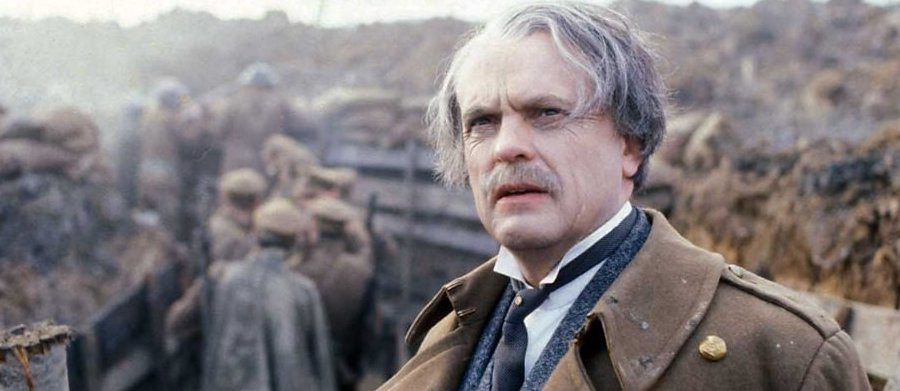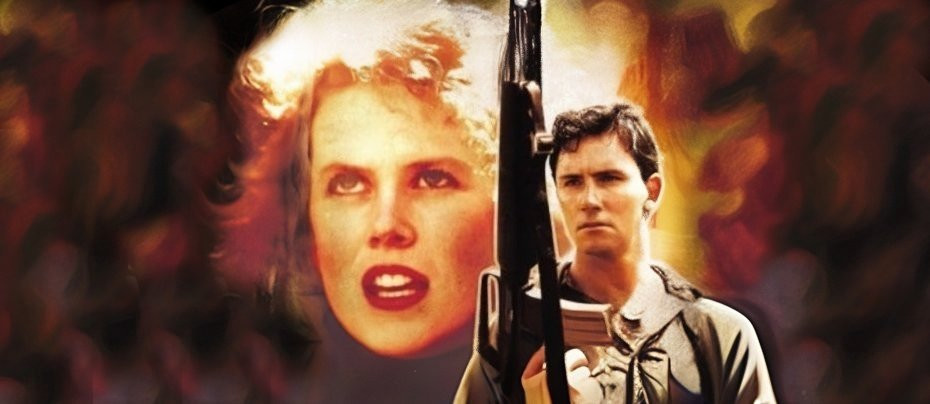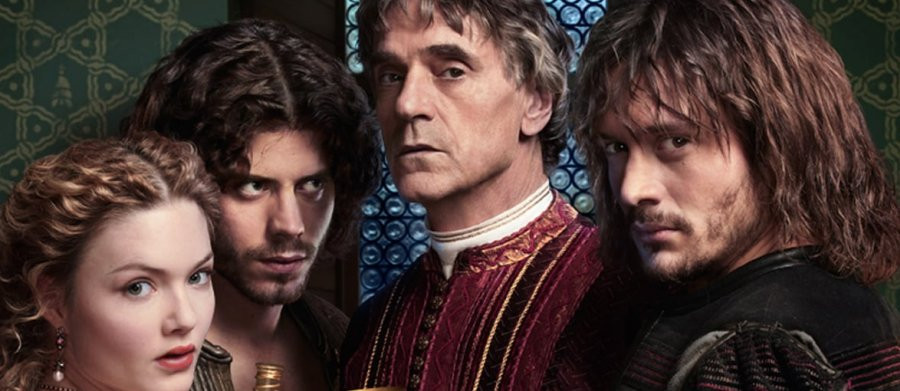
The Borgias
2011 - United StatesReview: John Winterson Richards
If ever a man has had a raw deal from history it is Alexander VI. A visionary geostrategist and an astonishingly capable diplomat, he was acknowledged by his contemporaries, and by at least some of his successors, as one of the greatest statesmen of the Renaissance. He unified his realm by bringing his unruly vassal states under central control and preserved its independence when it was threatened by greatly superior powers on either side. Equally capable of charm, moderation, and ruthlessness as each situation demanded, he was particularly adept at playing his rivals off against each other.
If it must be conceded that his curriculum vitae also includes double-dealing, assassination, bribery on a massive scale, incredibly high living, mistresses and illegitimate children, and lavish gifts to them of property that, technically speaking, did not belong to him, that is only to be expected of a successful politician in Italy
...unless he is meant to be the Pope, which Alexander was.
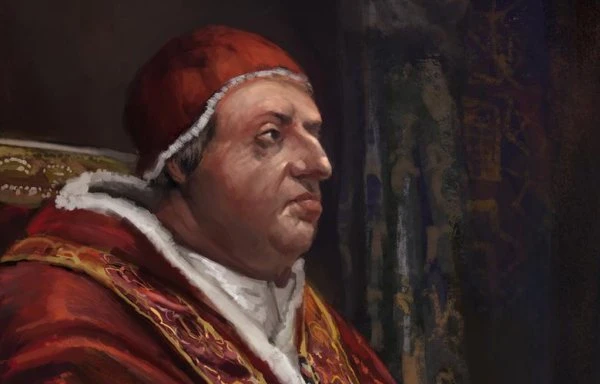
Even so, Alexander - or Rodrigo Borgia to give him his familiar name - was no worse than many Popes and a lot better than some. For over a thousand years, Popes were simultaneously both Spiritual leaders of the Catholic Church and secular rulers of Central Italy. It was hard to balance the two roles, and most ended up concentrating on one or the other. Rodrigo Borgia was far from alone in his focus on the secular.
Despite this, he was by no means irreligious and sometimes had serious thoughts about reforming the Church - even if they tended to pass quickly. It is possible that if Rodrigo had been able to concentrate his formidable talents on the Spiritual side of his job, Martin Luther would have lived and died an obscure monk in Germany. Curiously, one of Rodrigo's great grandsons later became a fully canonized Saint - yes, there really is a genuine Borgia Saint.
It therefore seems unfair that the name Borgia has become a byword for Papal corruption when at least half a dozen noble Italian families abused the Papacy far more than the Borgia did. There are two reasons for this systematic defamation. First, the Borgia were outsiders, Spanish not Italian. Second, even more unforgivably, they were effective, very effective.
They came so close to their objective of establishing a foreign dynasty in Central Italy that for the next four centuries, the Italians were careful to make sure that, with one brief exception imposed from outside, the Pope was always an Italian. As a result, the vicious propaganda hurled at the Borgia by their opponents - the sort of rumours contenders for the Papacy always spread about their rivals during this period - took on the status of official truth.
This has made them ripe material for literary fiction. Television has also been aware of their potential - but its attempts to exploit it have so far been very disappointing.
The failure of a much maligned BBC epic in 1981 contributed significantly to the Beeb's retreat from historical drama, a genre in which it had built global dominance over the 1970s. In retrospect, however, this version of The Borgias may be in the same category as its historical namesakes in that it certainly deserves criticism but that criticism has been exaggerated by a mob mentality and also ignores that it has many good points to set against the bad.
Nevertheless, its reception was enough to put producers off the subject for thirty years - and then, like London buses, two came along at once. Of these, one, Borgia, was a Euro-pudding, but the other, sharing the title of The Borgias with the BBC version, was a far more prestigious affair, headed and largely written by the respected Irish film director Neil Jordan.
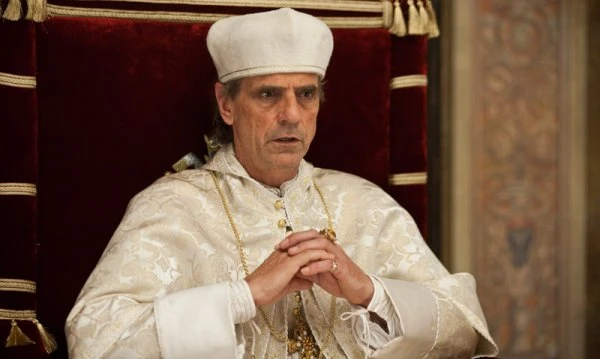
His best decision, and greatest achievement, in the project was casting Jeremy Irons as Rodrigo. He is the best thing in it. Irons gives us an urbane Jeremy Irons Pope, conveying the essence, if not quite the detail, of both Rodrigo's political acumen and the more salacious side of his character.
Physically, he looks nothing like the historical Rodrigo. This is one thing the BBC got right in its controversial casting of Adolfo Celi in the role. Celi, best remembered as the splendid villain in 'Thunderball,' had the animal magnetism that still glows from portraits of Rodrigo, and his strong Sicilian accent - ironically the most criticised aspect of the 1981 version - is also authentic in that it had much the same effect on English speaking viewers as Rodrigo's Spanish accent probably did on his Italian contemporaries.
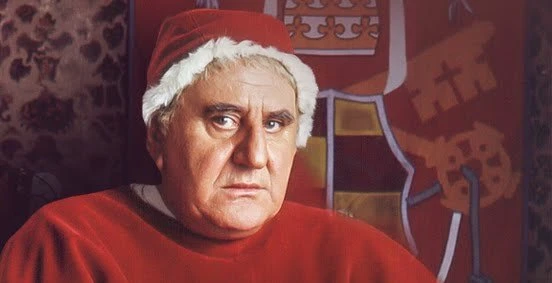
At least Irons is entertaining - which is more than can be said for Francois Arnaud and Holliday Grainger as the most famous of his children, Cesare and Lucrezia. The former is simply too nice and the latter too nasty. Cesare Borgia was at best a brilliant borderline psychopath - in fact probably well over the border - and to suggest that he was basically a pleasant sort of chap hardened by events is historically illiterate and misses a great dramatic opportunity. By contrast, any half decent historian will tell you that the evidence suggests that Lucrezia was a very respectable lady, a good wife and mother. To present her as a scheming tart is to give too much credence to misogynistic propaganda put out by political enemies of the Borgia.
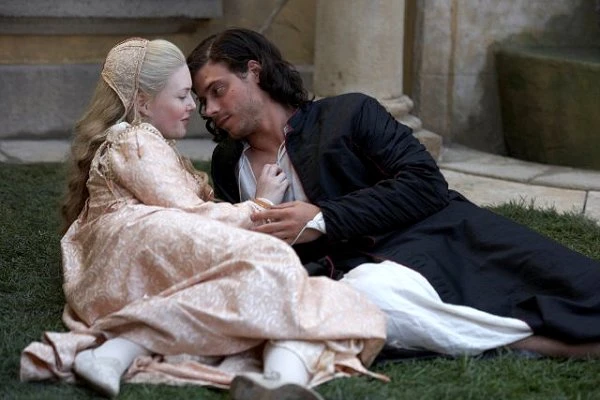
So the show is interesting when Irons is on-screen but loses momentum when he is not because we never really get to care about Cesare or Lucrezia. This is not necessarily the fault of the actors. Rather it is yet another warning to writers that they are usually better off if they stick as close as they can to what history gives them.
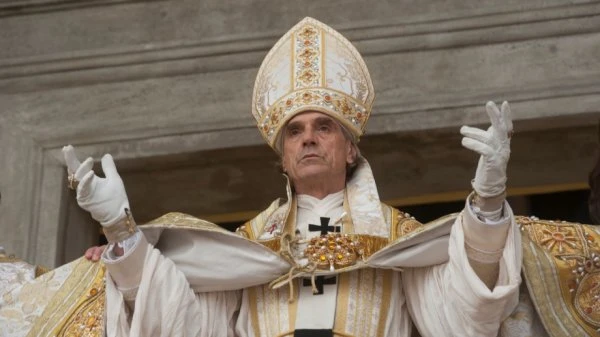
It may be significant that The Borgias was produced for Showtime, who had previously commissioned The Tudors. It was Michael Hirst, writer and producer of The Tudors, who, more than any other individual, is responsible for the recent trend of historical dramas taking a pick and mix attitude to history. An unreliable source, the usual one, names him as an executive producer on The Borgias, but our research - yes, actual research - has been unable to verify this. If, as seems probable, this is just another Wikipedia error, it is an understandable one, because the Hirstian ethos hangs heavy on the plotting of The Borgias.
This makes the whole thing a missed opportunity because the real story of the Borgia is one worth telling. That Jordan put together a strong production in other respects makes it doubly a pity.
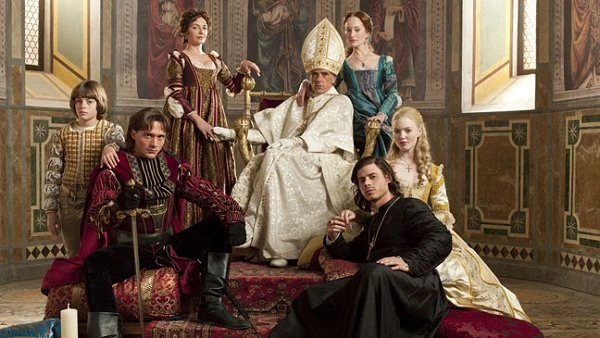
The supporting cast has great strength in depth. Like Irons as Rodrigo, Colm Feore captures the essence of his great rival Cardinal Giuliano della Rovere in spite of a lack of physical resemblance. The same is true of Steven Berkoff, who brings his ever compelling presence to the role of Savonarola, even if he is no one's idea of an ascetic young preacher.
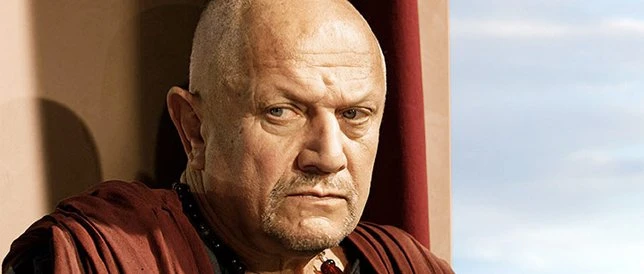
It is so good to see those superb actresses Joanne Whalley and Gina McKee, as Cesare's mother and arch-enemy respectively, that we can forgive their roles being expanded beyond what historical sources imply. This is excusable because they are not positively anti-historical.
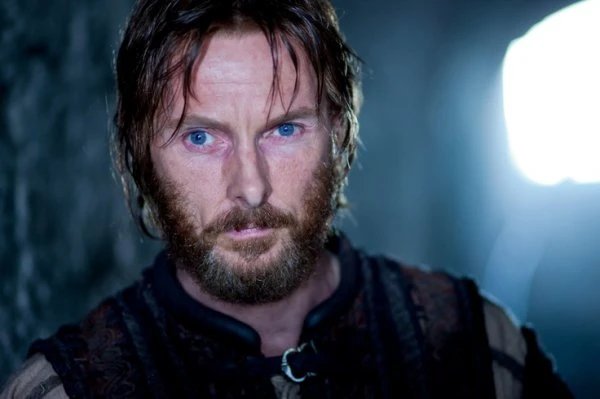
The most memorable performance is delivered, predictably, by Sean Harris as Miguel de Corella, known as Michelotto, Cesare's legendary enforcer. He plays him as the sort of chap with whom you would avoid eye contact if you saw him drinking down the pub. Thure Lindhardt, as a more self controlled rival assassin, may be closer to the real Michelotto, but Harris, taking another route, still makes the crucial point that the original was not a man to cross.
Ivan Kaye, an expert in bullying authority figures, is close to history as the aggressive, ambitious Ludovico Sforza, the usurper of Milan. Sir Derek Jacobi and Vernon Dobtcheff turn up as generic Cardinals: it is a shame they could not be found something more substantial to do.
Some of the CGI evocations of Renaissance Italy are quite magnificent. Others ...are less so. In any case, it shows how quickly technology is advancing that they were soon outdated by the wonderful blending of effects and location in Medici Masters of Florence only three years later.
The show won well deserved Awards for its costumes, but then a show about the Renaissance has an unfair advantage in that regard. More importantly, is it not in itself a condemnation of the show as a whole if its most acclaimed aspect is the clothing? Surely the viewers ought to be so transfixed by the drama that they do not care what the characters are wearing?
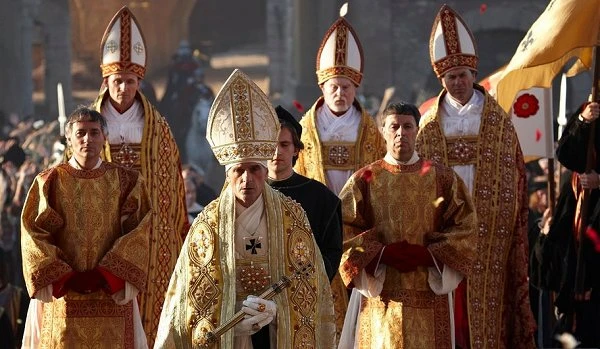
This leads to a surprising conclusion: if pressed to say which of the efforts to date provides the best television dramatisation of the Borgia, it has to be the old BBC version. It scores higher in its use of locations, in at least some of its casting, and in historical accuracy - and therefore in dramatic interest and narrative flow. The Jordan version wins only in costumes, lighting, and production design. Meanwhile, the Borgia are still waiting for the definitive version of their story.
John Winterson Richards
John Winterson Richards is the author of the 'Xenophobe's Guide to the Welsh' and the 'Bluffer's Guide to Small Business,' both of which have been reprinted more than twenty times in English and translated into several other languages. He was editor of the latest Bluffer's Guide to Management and, as a freelance writer, has had over 500 commissioned articles published.
He is also the author of ‘How to Build Your Own Pyramid: A Practical Guide to Organisational Structures' and co-author of 'The Context of Christ: the History and Politics of Rome and Judea, 100 BC - 33 AD,' as well as the author of several novels under the name Charles Cromwell, all of which can be downloaded from Amazon. John has also written over 200 reviews for Television Heaven.
John's Website can be found at John Winterson Richards
Seen this show? How do you rate it?
Seen this show? How do you rate it?
Published on April 25th, 2020. Written by John Winterson Richards for Television Heaven.




